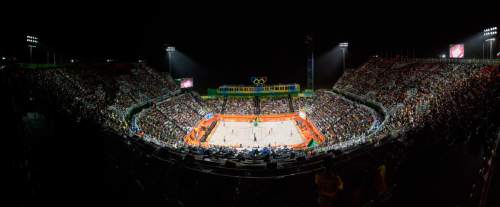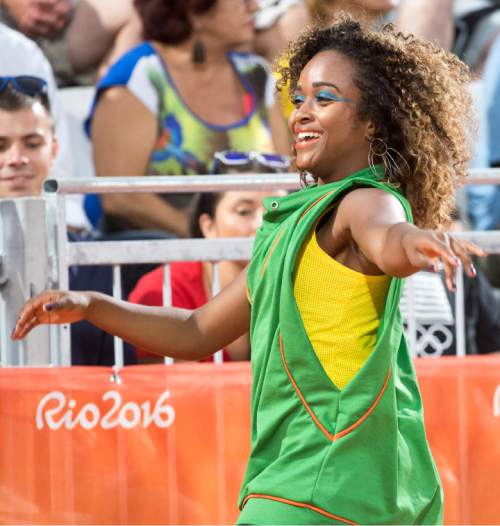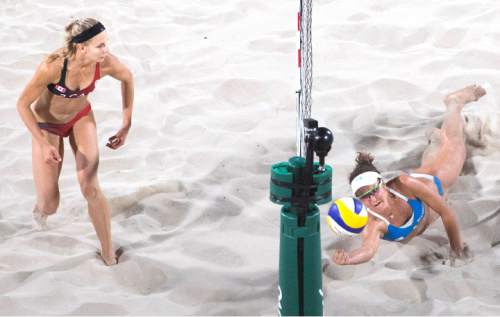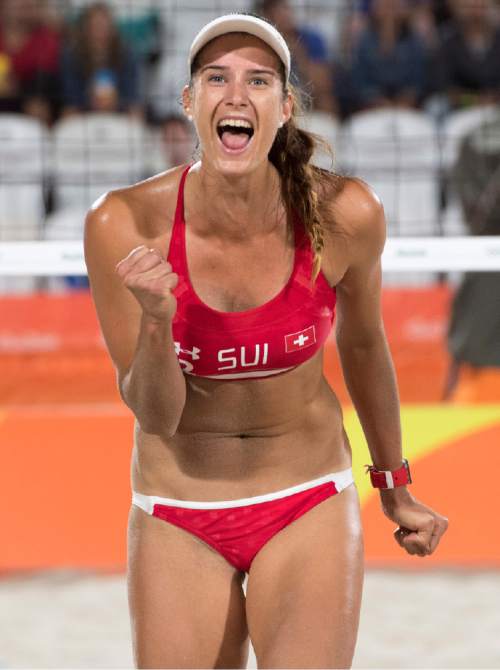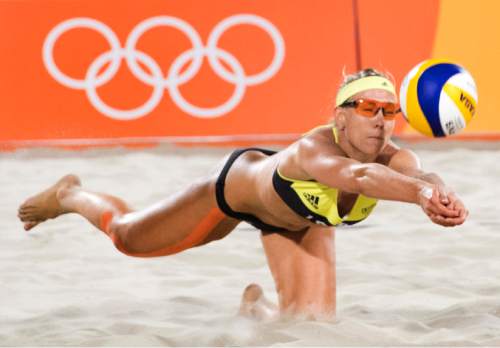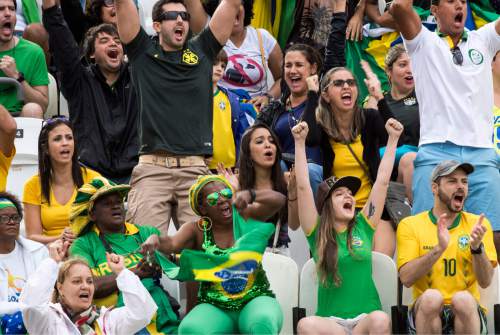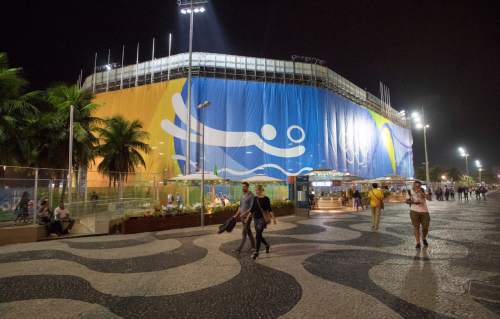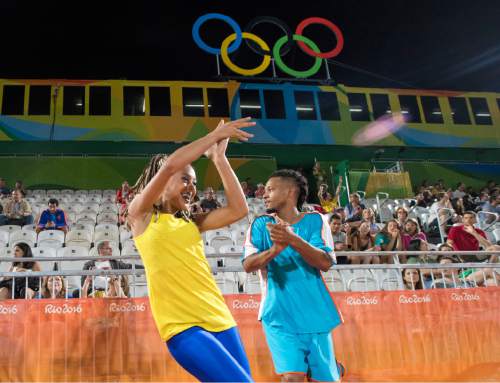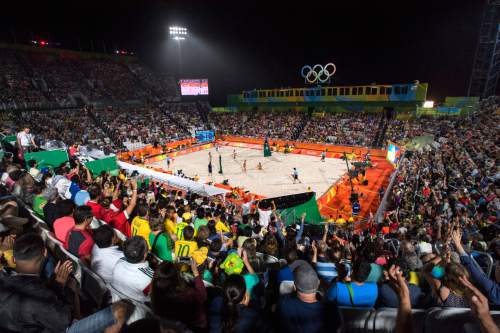This is an archived article that was published on sltrib.com in 2016, and information in the article may be outdated. It is provided only for personal research purposes and may not be reprinted.
Rio de Janeiro • In the darkness beyond the venue, the breaking waves of the Atlantic Ocean and the outlines of passing ships are faintly visible.
Inside, Olympic beach volleyball competition is in high definition — and volume. The music blares, fans cheer every point and a Latvian player prowls around the court to celebrate his team's victory.
The scoreboard clock reads 1:09 a.m.
The three-set match against Canada began 61 minutes earlier, almost right on schedule. The setting is the late-night vibe of Copacabana, but the midnight match is not just a Rio thing. The daily lineup of 12 matches begins at 10 a.m. and continues almost hourly, making the beach volleyball site both the biggest party and the busiest venue of the Summer Games.
The schedule requires some adjustments for the players, but they love competing in the vibrant scene created by the accompanying music, the strobe lights and the involvement of fans who stick around to the end.
The atmosphere is "like nothing I've ever experienced in my life," said Canada's Kristina Valjas.
The crowd does dwindle, even in Rio. As Sunday turned into Monday, the stands were packed for a 10 p.m. match, but by the start of the midnight event, fans above the concourse were invited to come closer.
A few thousand fans, including a surprising number of wide-awake children, stayed for the late match. And they got into it, as the players performed on the natural sand of Copacabana — the spiritual home of the sport, as viewed by the beach volleyball community.
With audience participation seemingly mandatory, regardless of country affiliation, fans respond to points scored by either team in a sport that produces short rallies. They know the moves: A "monster" block evokes the thrusting of arms, palms down. A big spike earns a "Here Comes the Boom" music riff, with waving hands and fingers extended.
"Playing in Copa is amazing; the energy here, it absolutely elevates players," said U.S. star Kerri Walsh Jennings.
When her second midnight match in a row concluded early Tuesday with another sweep, Jennings looked forward to a more conventional starting time of 9 p.m. Wednesday with teammate April Ross. "It's a long, long day," she said. "Playing at midnight is a certain kind of challenge, [but] it brings out something great in us."
College football teams in Utah regularly finish games near midnight, but an 8:15 p.m. kickoff requires less time to kill than the volleyball athletes experience. Unlike football games, the volleyball matches are not dictated by television. Jennings and Ross have played at 11 p.m. EDT after the NBC Sports coverage of the Olympics.
Former BYU player Casey Patterson and Bountiful's Jake Gibb have been assigned late-afternoon and morning times in preliminary play, but Patterson said they could have adjusted if necessary. "We travel the world; we're constantly on different time zones and our brains are somewhere else," he said. "We've trained ourselves to perform with that. I have absolutely no problem with it."
After her 10 p.m. match, though, Valjas winced about having waited all day to play. "I usually go to bed at 10," she said. Reminded that a Canadian men's team would play at midnight, she said, "I thought ours was bad, and then I saw their time."
Those Canadians, Chaim Schalk and Ben Saxton, made their match last a long time. They forced a third set and led, 12-10, but Latvia rallied for a 15-13 win. Having stayed up into the early hours of Monday only to lose, Schalk and Saxton trudged off the court as Aleksandrs Samoilovs signed the game ball and heaved it into the crowd.
The next match was less than nine hours away, with the public address announcer promising the tournament would resume "tomorrow morning." Today, actually.
Twitter: @tribkurt
— Tribune Reporter Christopher Kamrani contributed to this story


